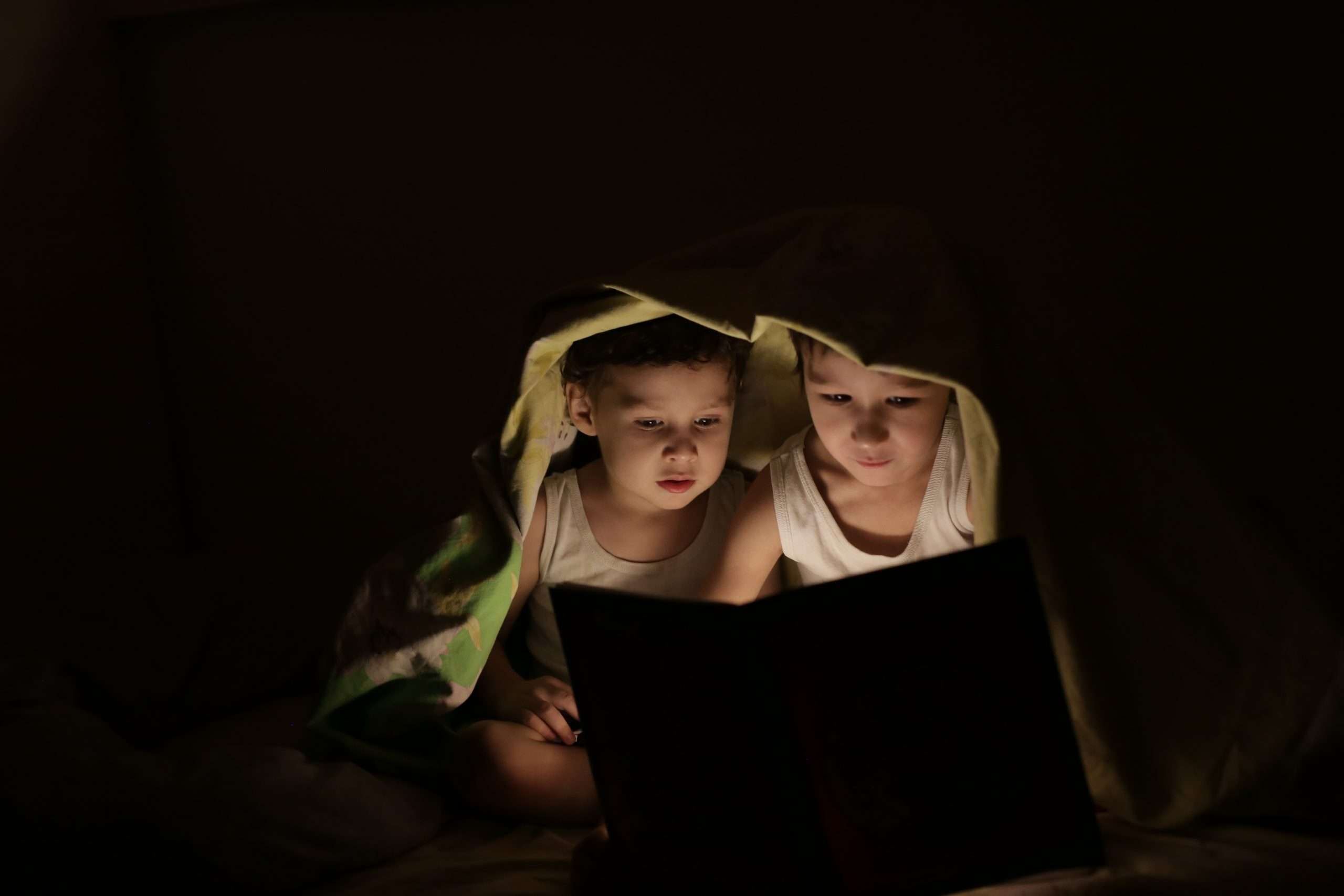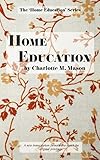A few years into our homeschool career, I was introduced to Charlotte Mason.
This British educator was a pioneer and revolutionary in education during her lifetime. Before the 20th century, children were not treated as persons and they had no rights.
Poor children especially received little to no education and were labeled by the upper classes as “bad” or “not worthy to educate.”
Children born into wealthy families were given the best education that money could afford. It was during this time that Charlotte Mason fought for better education for children of all classes.
One of Charlotte’s most noted sayings states, “children are born persons.”
Disclaimer: In this blog post, I refer to the child in the masculine forms (he, him, his) for ease of reading and writing. All of these points refer to both girls and boys. Thank you for understanding.
Charlotte Mason & Narration
When I was first introduced to Charlotte Mason, I read as many books (see below) and blogs about her as I could.
I adapted our studies in a way that could explore her teachings. I am not a Charlotte Mason purist by any means, but I can appreciate her philosophy on education and the value of narration.
Narration is the retelling of a story in a child’s own words. It is more than just a summary or a regurgitation.
The child internalizes the story and reflects on it verbally or in written form. Narration allows the child to take ownership of what was read, meditate on it, and express their observation.

What no one tells you about narration:
Over the years, I have listened to and read countless narrations. I was reflecting on this one day. It is as if I have a little window into my children’s souls.
Each narration is a reflection of the deeper thoughts and inner workings of my children.
As a mom to an adult child, I have become keenly aware that our relationship and the relationships with my other children have been greatly impacted by these narrations and that these narrations (aka educational tools) have deep and lasting effects.
Everyone who homeschools using the Charlotte Mason method will tell you to use narration.
There are several books including the ones written by Miss Mason herself that will tell you how to implement narration and its benefits.
- Mason, Charlotte M (Author)
- English (Publication Language)
- 394 Pages - 06/29/2017 (Publication Date) - Living Book Press (Publisher)
I started using narration for all of the academic reasons, but never considered the lasting impacts they would have.
These lasting effects of narration may be different for each family and for each child. These are what we have experienced and have observed in our own children.
I am going to share with you the reasons to use narration in your home school, the ones that no one tells you about.
1. Creates lifelong learners
Our children live in a highly technological world and are constantly bombarded with new information.
Reading and narrating slows down the speed of the information that is going into their brains and helps a child actually process the information.
By internalizing what has been read and reflecting on it, children naturally ask questions and want to learn more.
They aren’t filling in the blanks in a workbook or learning answers for a test, they are creating thoughts and opinions.
Children are learning how things work, and are acquiring knowledge in a satisfying way.
They are developing a personal relationship to what they are learning and will hold many of these thoughts and ideas deep in their heart, years after being introduced to them.
Narration allows a child to meditate on ideas and create wonder about how this relates to other things and ideas. It initiates a curiosity and thirst for more knowledge.
“Miss Mason has taught us that the love of knowledge and the desire to continue learning for a lifetime is a higher goal. It is a nobler idea.” – Karen Andreola in A Charlotte Mason Companion.
- Karen Andreola believes you can experience the joy-filled homeschool of your dreams!
- Andreola, Karen (Author)
- English (Publication Language)
- 384 Pages - 01/01/1998 (Publication Date) - Charlotte Mason Reseach & Supply co (Publisher)
2. Incredible attention to detail
A child that learns to narrate pays incredible attention to detail. This doesn’t always happen right away, it is a skill that is learned.
Over time, the child learns to pay closer attention to what is read. Certain details will stick in their minds.
One of my children always finds the silliest and funniest phrases in a book and another always seems to point out everything that has to do with food.
This attention to detail pours over into other aspects of life. A keen sense of observation is notably trained after years of narrating.
My oldest recently bought a car. Before he bought the car, he looked at a number of possible vehicles.
His dad, our neighbor, and himself talked about each of the vehicles and remarked on even the minutest of details.
I am always amazed at the details he remembers or brings my attention to in various aspects of his life.
Whether it is in choosing a post-secondary institution, or the latest piece of photography equipment, I get a full account of all the pros, cons, details and considerations.
I blame this (if you will) on the number of narrations done over the years.
3. Amazing retention abilities
When a child narrates a story, he becomes involved. This involvement causes him to make connections. These connections help him remember things.
For example, you read the story ‘The Very Hungry Caterpillar‘ to your child. He listens to the story and then promptly tells you what he has remembered.
- Now even younger children can follow the little green caterpillar as he eats his way to becoming a beautiful butterfly in this sturdy board book
- Great for early development
- Children will enjoy this delightful tale
- Ages 2 to 5
- Carle, Eric (Author)
He might tell you that the egg on the leaf turns into a hungry caterpillar. He tells you all about the different things the caterpillar eats.
This is a retelling of what the child has retained. Over time, a child will retain more and more information.
The skill of ‘retelling’ is really important and is especially encouraged by parenting experts when giving a child instructions.
When you give a child instructions to do a chore, for example, you then ask them to repeat it back.
This not only lets the parent know that the child listened to the directions, but also informs the parent that the child understands what is expected of him.
Honing narration skills not only helps a child prepare for post-secondary education, but it prepares him for life.
I can imagine that my boys will grow up to be great husbands because they will retain what their wives have said to them. I can hope, can’t I?
4. Advanced language development
Another observation that I have made is that children who narrate develop more advanced vocabulary and sentence structure.
However, this is also dependant upon the type of books read to your children.
Young children comprehend at a higher level than their reading ability allows and therefore are able to narrate using more complex sentences and larger words.
In narration, a child imitates the author using the words and sentences they remember, sometimes word-for-word. They may not even know the meaning of the word that they use, but they use it anyway.
New words are incredibly fun to use in everyday language. Have you ever heard a little child use a big word in the wrong context? It is adorable and sometimes funny, isn’t it?
One of my kids loves words. This was evident at a very young age. He looked lovingly into his big sister’s eyes and said, “Maria, you look absolutely hideous!”
She was so shocked and a little upset until we found out that what he meant to say was that she was absolutely beautiful.
He wanted to find a bigger and better word than beautiful and had just learned the word ‘hideous’ and thought it must be better than beautiful.
Children are going to develop communication and language skills no matter what we do. The development of communication is developed through exposure.
Naturally, children who are exposed to great literature and are encouraged to talk and write about it will develop more advanced language skills.
5. Builds relationships
Building relationships is often quoted as a reason why people homeschool. It is one of ours.
Spending time reading and discussing together inevitably creates connections and memories.
As a parent, we build important communication skills when we listen attentively to a narration. A child appreciates your attentiveness and gains self-confidence.
A child wants to be heard and the time you spend listening and reading narrations are extremely important to the child and his development.
When a child learns that you will listen to a narration with pleasure, they will gain a much deeper trust. The relationship forged during narration opens a child up to confide in you with confidence.
He will want to tell you all about something he learned or something terrible that has happened without your prompting. This is an amazing thing, especially once your child reaches their teen years.
Not only does the time spent in narration build up your child’s self-esteem, it also creates memories.
Your children will not only remember what they heard or read but will also remember the times spent discussing books among other things.
We are quite nostalgic in our home, maybe you can relate? I love hearing the children ask or talk about books that we’ve read or hear them quote from their favorite books.
But most of all, I love that my children feel like they can tell me anything. I love what narration has done for our family. If you don’t already, you need to start having your children learn to narrate.
You won’t regret it.
Do you use narration in your home school? What have you discovered in your own family? Tell me what you love or hate about narration in the comments below.
Charlotte Mason Education
If you are interested in learning more about Charlotte Mason Education, especially the use of narration, I highly recommend reading Home Education, a 6 book series written by Charlotte Mason herself.
- Mason, Charlotte M (Author)
- English (Publication Language)
- 420 Pages - 06/09/2017 (Publication Date) - Living Book Press (Publisher)
Over the years, I have collected and read a number of books about Charlotte Mason.
I find her philosophy on education fascinating and implement facets of it in our home school. I highly recommend the books listed below.
Last update on 2024-07-26 / Affiliate links / Images from Amazon Product Advertising API









